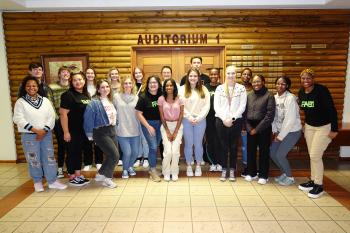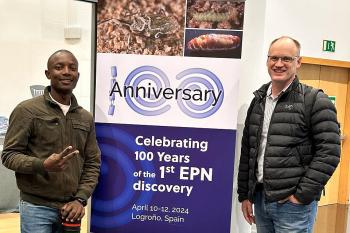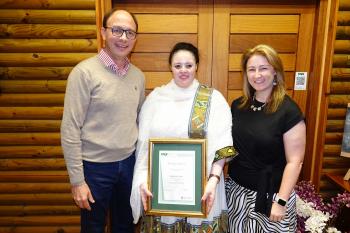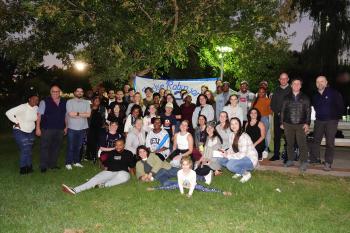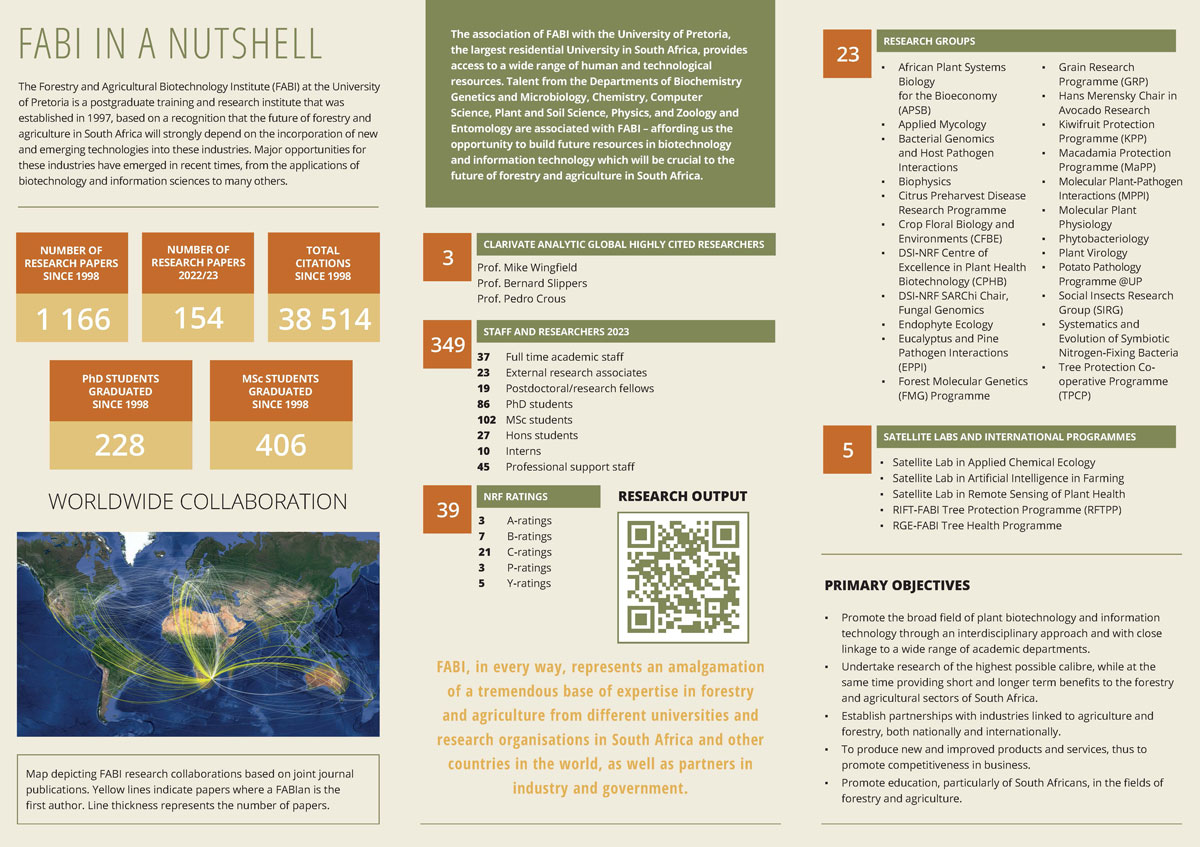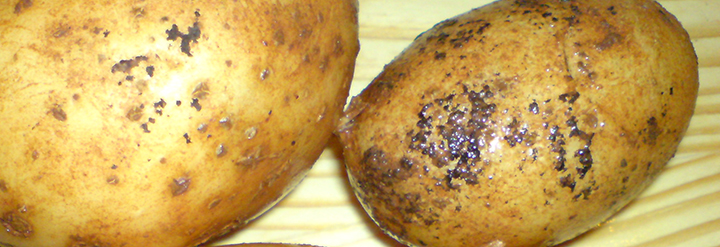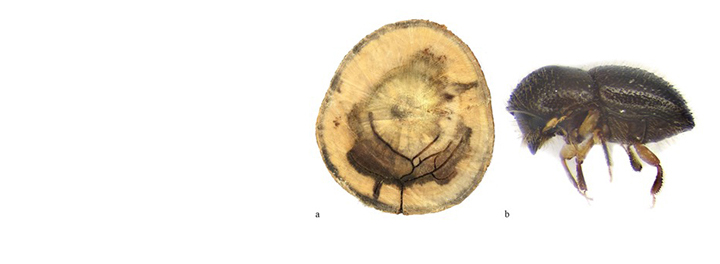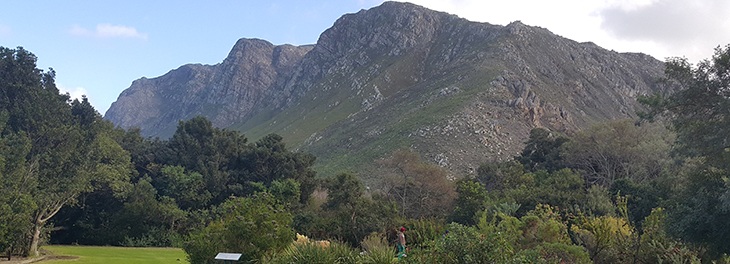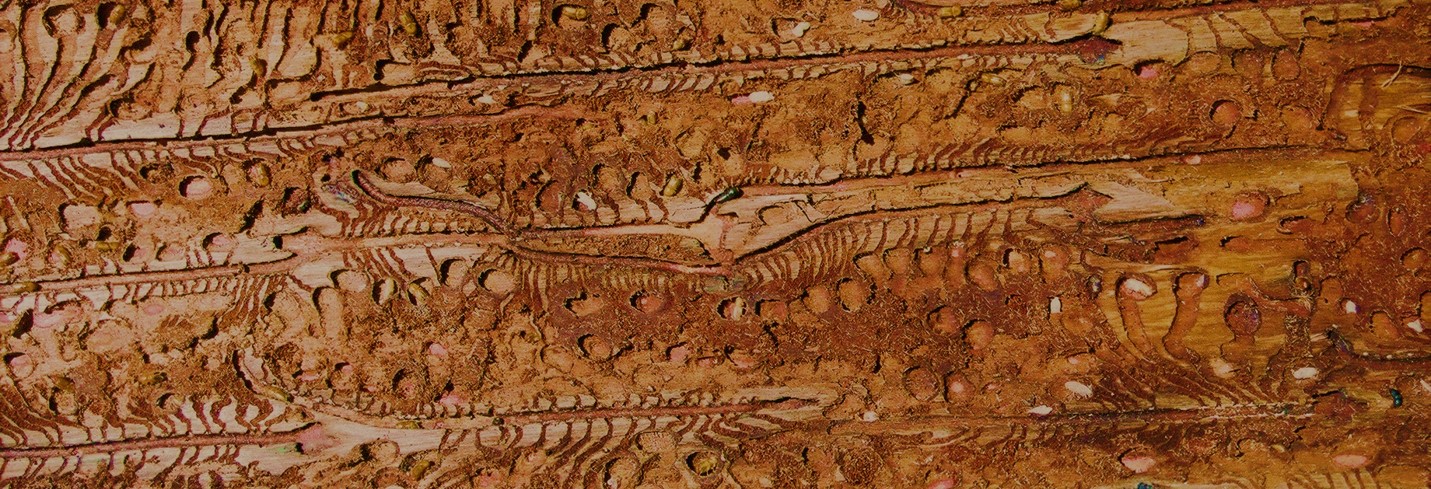Postdoctoral Fellowship: Pathogen Bioinformatics
February 2013
A Postdoctoral Fellowship is available in the Molecular Plant-Pathogen Interactions (MPPI) Lab, Plant Science Department, Forestry and Agricultural Biotechnology Institute (FABI) at the University of Pretoria, South Africa.
Required Qualification: Ph.D in Bioinformatics or related field.
Preferred: An excellent track record in implementation and development of bioinformatics software using open source platforms. Experience in fungal genome assembly, annotation, RNA-seq analysis and comparative genomics. Knowledge of or interest in the molecular basis of pathogenesis in crop pathogens. Good communication skills and a willingness to contribute to the improvement of maize, a staple diet for the people of Africa.
Description: The MPPI research group has an on-going research project on grey leaf spot disease (GLS) in maize. GLS is a threat to Food Security in sub-Saharan Africa. We have characterized the fungal pathogen that causes the disease in the region (Eur J Plant Path (2009) 124: 577-583), and have developed methods for phenotyping the disease (Eur J Plant Path (2012) 133: 461-471). We have sequenced the genome and transcriptome of a local isolate of the fungus. The aim of this postdoctoral position is to answer key questions concerning the pathogenicity mechanisms of this pathogen through assembly and annotation of the genome, and comparative genomics with other plant pathogenic fungi in the Dothidiomycete group. The outputs of the bioinformatics analysis will be tested in collaboration with wet-lab members using an established functional genomics platform.
The MPPI research group has developed several bioinformatics software tools in collaboration with the Bioinformatics and Computational Biology Unit at the University of Pretoria (e.g. BMC Genomics (2008) 9:105; Plant Methods (2010) 6:10; Plant Methods (2011) 7:31). The incumbent will work in the Unit but the position will also be linked to the the University of Pretoria’s Institutional Research Theme (IRT) for Genomics. The project is carried out in collaboration with fungal geneticists in the USA.
Pretoria is an attractive destination for those interested in experiencing life in South Africa. It is the Capital City, is host to most Embassies and is well known for the seasonal displays of Jacaranda trees. Pretoria is on the doorstep of the bushveld game parks, home of the Big Five (www.southafrica.net). The weather is good all year round and most days are sunny and warm.
The position is available for two years and applicants will be eligible for the 2013 round of the Vice- Chancellors Postdoctoral Fellowships. First deadline for applications is 23 March 2013, however the post will remain open until a suitable candidate can be found. Please apply by forwarding a complete CV with contact details of three referees (including phone numbers and email addresses) to Prof. Dave Berger (dave.berger at fabi.up.ac.za). Applicants should clearly describe their expertise and verifiable outputs in computational biology.
Please note that unsuccessful applicants will not be contacted.
Prof Dave Berger
Direct Telephone: +27-12-420-4634
Direct Telefax: +27-12-420-6668



